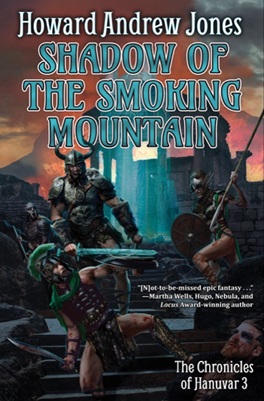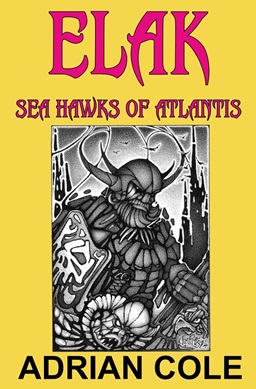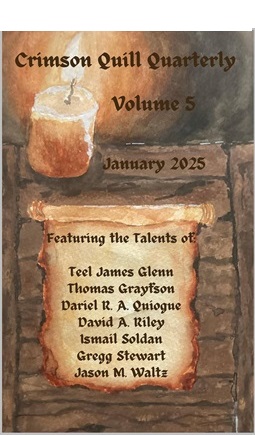THE BARONESS DREFELIN
THE BARONESS DREFELIN, by David Pilling:
The knight’s name was Brian Fitz-Count, and every step of his horse was taking him farther away from where he wanted to be. Or, to be more precise, the person he wanted to be with.
The Queen of England haunted his waking moments and stalked his dreams, so he was never free of her. Brian had served her faithfully for twelve years, and his outward devotion had been the perfect expression of chivalric loyalty.
Only one knight had ever dared to hint there might be something carnal about his love for her. Brian killed the man on the spot and immediately left court to escape the inevitable shame and censure. Now he wandered the wilds of Wales, landless, friendless and penniless.
His aimless route took him deep into a particularly wild and lawless region, and he soon became lost among barren rain-washed hills.
One night on the cold hillside, Brian knelt and prayed that he might see one more human face before he died. The following morning his wish was granted, as the curtains of mist parted to reveal a lonely shepherd’s cot.
The shepherd himself was squatting under the low doorway, scratching at his fleas and regarding the world with quiet interest. He looked up bleakly as Brian spurred toward him.
“There is no getting away from you Normans,” he said in a rasping Welsh accent, “when I lived in the valleys, your people were everywhere, with your armour and your big horses and your angry flushed faces. Seven times they burned the roof over my head, which was why I moved up here. And now you come.”
“Surely nothing can burn in this sodden country,” replied Brian in careful Welsh. Unlike most of his fellow Normans, he had taken some trouble to learn the language of the people they had conquered. “And I come, not in state of war, but to beg a question.”
“That is graciously said,” the shepherd replied, “so ask away.”
“Who is the lord of this country, and where does he live?”
“We have no lord, but a lady. Her name is the Baroness Drefelin, and she lives” — he waved a skinny arm vaguely to the west — “over there.”
“In a castle?”
“Drefelin Manor is a fine stone house, surrounded by high walls and round towers. Be warned, she is a reclusive lady and receives few visitors.”
“I was a great man once,” Brian said proudly, “and the blood of conquerors flows in my veins. This Baroness shall receive me.”
“She is also very beautiful. No man can look upon her face and keep his sanity. He is doomed to wander the earth, sick unto his heart.”
Brian looked away, toward England, and said nothing.
The shepherd shrugged. “You are welcome to share my cot for the night. It might be safer.”
“No, but I thank you. Here, for your trouble.”
Brian dug out his last remaining shilling and flipped it at the shepherd. Then he wheeled his horse and rode away westward into the rain.
Drefelin Manor stood near the bottom of a steep valley covered in dense forest. Brian came within sight of it on the cusp of evening, and reined in to admire its strong high walls and round towers, just as the shepherd had described.
Normans admired strength, and the Manor had strength in abundance. The tiled roof of the house itself peered over the battlements, and a black banner with no device dangled limply from one of the turrets.
Brian urged his tired horse down the slope. There was no sign of life from the house, and no guard or sentry hailed him from the battlements. All was dark and quiet, but still preferable to sharing the shepherd’s flea-bitten bed.
Suddenly the bowl of the valley erupted with the sound of thousands of galloping hoofs, along with the baying of hounds and the war-shouts of men charging into battle. Brian’s hand flew to his sword.
The thunder of hoofs rose to a storm, the war-shouts to a piercing scream, and Brian thought he could make out black banners surging over the ridge. They were coming; they were coming, from all directions, in all their strength and terror. He raised his sword high and sang the Crusader’s Hymn:
“Fairest Lord Jesus, ruler of all nature,
O thou of God and Man the son; thee will I cherish…”
The first few words had barely spilled from his mouth before the Baroness appeared. She was a ghostly half-visible presence, but her face was as clear as the sun. It was the face of the Queen of England, the woman Brian ached for, and she regarded him with pity and scorn.
A terrific power overtook him, and Brian Fitz-Count knew no more.
He woke to find himself lying on the bare hillside, with his horse gently cropping the grass beside him. Of Drefelin Manor there was no sign, and the world was quiet as the grave.
Brian rode sadly back. On the way he passed by the shepherd’s cot. The shepherd was still squatting in his doorway, just as Brian had left him, but now he had a dark and malevolent look.
The shepherd looked up and waggled his eyebrows.
“Was the Baroness in residence?” he asked politely.
“There was no Baroness, but a phantom,” said Brian, “and I think you are no man at all, but a worthless fairy that has tricked me.”
The shepherd, who was in fact one of the more common sort of hill-sprite, bared his sharp yellow teeth. “You were in need of a lesson. Chasing after unattainable women is a waste of life.”
“I was not chasing the Queen, but running away from her.”
“It amounts to the same thing.”
Brian threw up his hands in despair. “What can I do? She is everything to me, and I am nothing without her.”
“Then live with being nothing. There are no cures for a broken heart.”
“But what can I do?”
The sprite considered. “Pottery,” he suggested eventually, “pottery is a nice hobby, and might take your mind off her. Besides, people will always need pots.”
Much later, as Brian rode toward the borders of England, he reflected that this was decent advice.
________________________________________________________
David Pilling is 32-years-old and currently works in the Library and Archive at the Tate Gallery in London. Previous jobs included stints at The Royal Opera House and The School of Oriental and African Studies. He has been writing fiction and non-fiction on a freelance basis for the past three years, and many of his non-fictional articles have appeared in various regional and national UK publications. David’s fiction is inspired by his love of historical and science fiction and authors such as George McDonald Fraser, George R.R.Martin and Bernard Cornwell.






